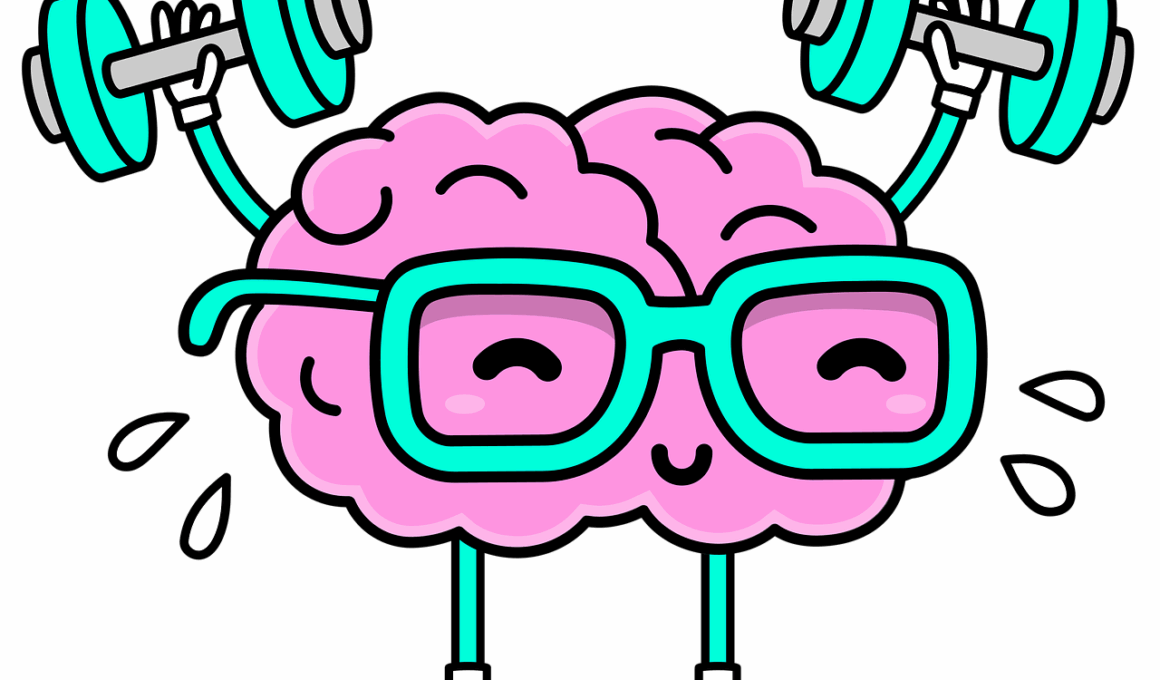Five Fitness Activities That Improve Cognitive Function in Teens
A well-rounded fitness regime not only promotes physical health but also significantly boosts cognitive function, especially in teenagers. Engaging in regular fitness activities helps improve mental resilience, enhances focus, and sharpens memory. Activities that require strategic thinking and coordination are particularly effective in stimulating brain function. Notably, cardiovascular exercises like running or cycling increase blood flow to the brain, enhancing overall cognitive abilities. Additionally, team sports can provide teenagers with opportunities for social interaction while improving concentration and problem-solving skills. This combination of physical exertion and mental activity is key to achieving mental resilience. Moreover, structured fitness routines help instill discipline and time management skills, which are essential for academic success. By incorporating a variety of exercises, teens can experience not just a boost in their physical endurance, but also in their mental capabilities. Engaging in practices such as yoga or martial arts can further merge physical fitness with mental clarity, providing exceptional results. Therefore, these fitness activities hold immense potential in developing a generation that is robust in both body and mind.
Cognitive Benefits of Team Sports
Team sports, like basketball and soccer, provide multifaceted benefits that significantly enhance teens’ cognitive function. Firstly, they foster teamwork, requiring players to collaborate effectively and communicate promptly. This social interaction sharpens emotional intelligence, engendering resilience that translates both on and off the field. Secondly, strategic elements inherent in these sports cultivate quick decision-making skills. Players must anticipate opponents’ moves and execute their tactics efficiently, stimulating the brain’s situational analysis capabilities. Moreover, team sports involve high levels of physical exertion, releasing endorphins that elevate mood and reduce stress, creating an optimal environment for learning and growth. This combination of physical activity, strategic planning, and teamwork fosters a sense of belonging, further enhancing their mental resilience. Furthermore, studies indicate that teens participating in team sports often exhibit improved focus and self-esteem, contributing to their overall academic performance. Regular training sessions can build discipline, and attending competitions enhances goal-setting abilities, both crucial for future endeavors. In sum, team sports empower teenagers to build essential life skills alongside cognitive enhancements, resulting in a well-rounded development process.
Another effective fitness activity that promotes cognitive function is martial arts. Practicing martial arts—such as taekwondo, karate, or judo—requires significant focus, discipline, and mental awareness. These practices encourage teens to maintain control over their bodies and minds during training and competitions, instilling a sense of discipline. The rigorous physical training involved produces endorphins that help relieve stress, while the meditative aspects improve mental clarity. Learning various techniques also enhances memory recall and improves concentration, as participants must memorize sequences and apply them strategically during sparring or competitions. In addition to these cognitive benefits, martial arts nurture qualities such as respect, patience, and perseverance—traits that contribute to mental resilience. Through the various gradings and belt systems, teens experience tangible goals that encourage dedication and accountability. This journey fosters a growth mindset, whereby setbacks are seen as learning experiences rather than failures, enhancing emotional resilience. Martial arts practitioners often report heightened self-confidence as they move through rankings and master new skills. Overall, martial arts serves both as a physical outlet and a powerful medium for developing cognitive functions and mental strength in teens.
Yoga’s Role in Mental Resilience
Yoga is an increasingly popular fitness avenue that helps foster mental resilience in teens through its unique blend of physical and mental discipline. This practice emphasizes mindfulness, aiding in stress management and emotional regulation. Yoga’s focus on breathing techniques enhances oxygen flow to the brain, promoting better concentration and clarity of thought. Through various poses and sequences, practitioners build strength, flexibility, and focus while calming the mind. The meditative aspect of yoga leads to improved awareness of one’s thoughts and feelings, creating a stronger relationship between body and mind. Teens who practice yoga regularly report better emotional control, increased focus, and reduced anxiety levels, all crucial for academic success. Moreover, the community aspect of group yoga classes fosters social connections, enhancing emotional resilience through shared experiences. The practice encourages setting goals and achieving them, which builds confidence and motivation. Yoga also nurtures problem-solving skills, as practitioners learn to adapt poses to suit their individual needs. Therefore, incorporating yoga into a fitness routine can vastly improve cognitive function in teens while providing essential life skills for mental and emotional resilience.
Cardiovascular activities, such as running or cycling, play a vital role in improving cognitive function in teens. These exercises increase heart rate, allowing for enhanced blood flow and oxygenation to the brain. This improved circulation helps stimulate the creation of new brain cells and encourages connections among existing ones, contributing to sharper cognitive functions such as memory and learning capabilities. Additionally, engaging in regular aerobic exercises has been shown to reduce stress and anxiety, allowing for clearer thinking and improved focus. The rhythmic nature of activities like running also lends itself to personalized goal-setting and tracking achievements over time, further boosting motivation and mental stamina. Furthermore, involving peers in these activities can enhance social interactions, building camaraderie and emotional support. These social connections are essential for improving mental resilience as teens navigate challenges in both academia and personal life. With concerts like local races or charity events, teens find purpose and support within their communities while engaging in healthy competition. Incorporating cardiovascular activities not only helps maintain physical health but also paves the way for a lifetime of both physical and mental well-being.
Impact of Dance on Cognition
Dance is a dynamic fitness activity that fosters creativity while significantly enhancing cognitive function in teens. Through various dance styles, individuals develop heightened spatial awareness, coordination, and timing—skills essential for cognitive growth. Dance also requires teens to memorize complex routines, which sharpens memory and encourages mental agility. Furthermore, dancing enables self-expression and emotional regulation, helping teenagers better understand themselves. Engaging in rhythm-based movement cultivates an understanding of body mechanics and improves overall physical fitness, contributing to increased self-esteem. The social component of dance, whether through classes or performances, enhances emotional resilience as teens form connections with peers, offering support in times of stress. Additionally, dancers often report increased confidence, benefiting their academic and personal lives. Dance sessions elevate mood by releasing endorphins, alleviating feelings of anxiety and enhancing focus. Through regular practice, teens can witness their progress and achievements, fostering a sense of accomplishment. Therefore, incorporating dance into fitness routines serves as an enjoyable path toward improved cognitive function while nurturing creativity and providing critical skills for mental resilience in young people.
Finally, circuit training can also enhance cognitive function in teens by combining physical fitness with mental challenges. This high-intensity workout format includes various exercises that target multiple muscle groups, promoting increased coordination and agility. Teens participating in circuit training often face tasks requiring rapid thinking, adaptation, and decision-making. This simultaneous engagement of body and mind leads to improved cognitive flexibility and task-switching abilities, both essential for academic success. The social aspect of group circuit training encourages camaraderie, offering support and motivation. Such an environment also contributes to emotional resilience, as participants share goals and challenges. Moreover, tracking progress through performance metrics helps teens cultivate discipline and goal-oriented behavior. Circuit training sessions usually incorporate a warm-up, strength, and cardio elements, promoting overall fitness while stimulating cognitive functions. The anticipation of transitioning between exercises engages mental focus, reinforcing resilience and determination. In summary, circuit training embodies a comprehensive fitness approach that supports both physical health and cognitive enhancement, empowering teens with critical skills for the future, all while maintaining motivation and excitement in their fitness journey.


